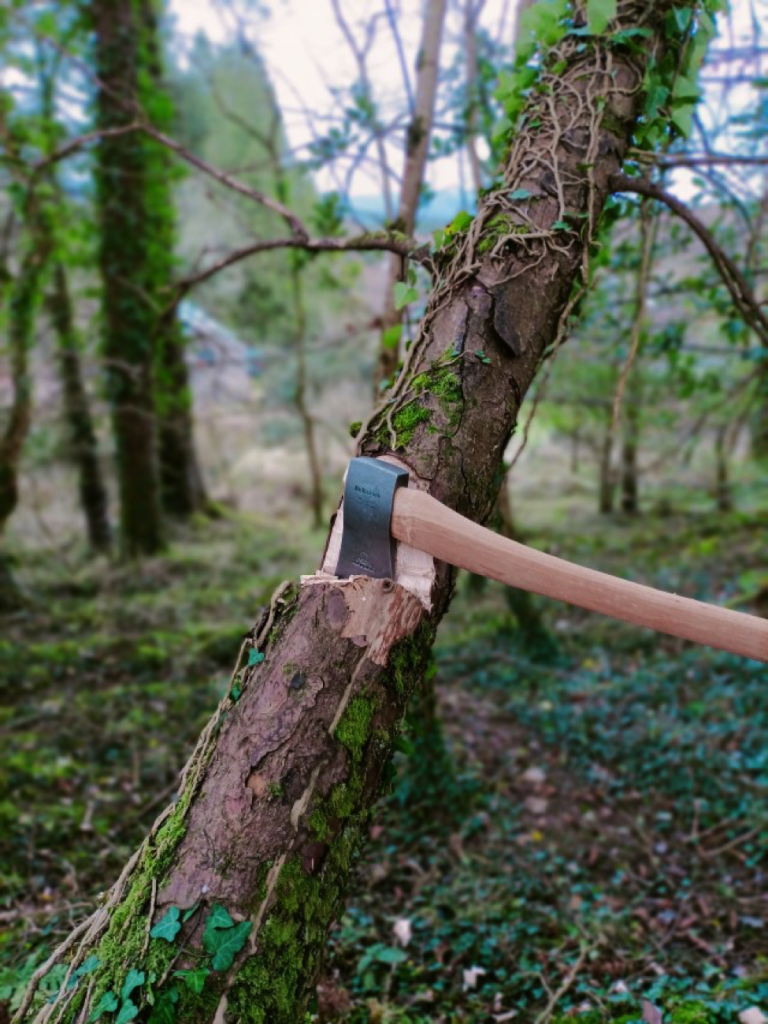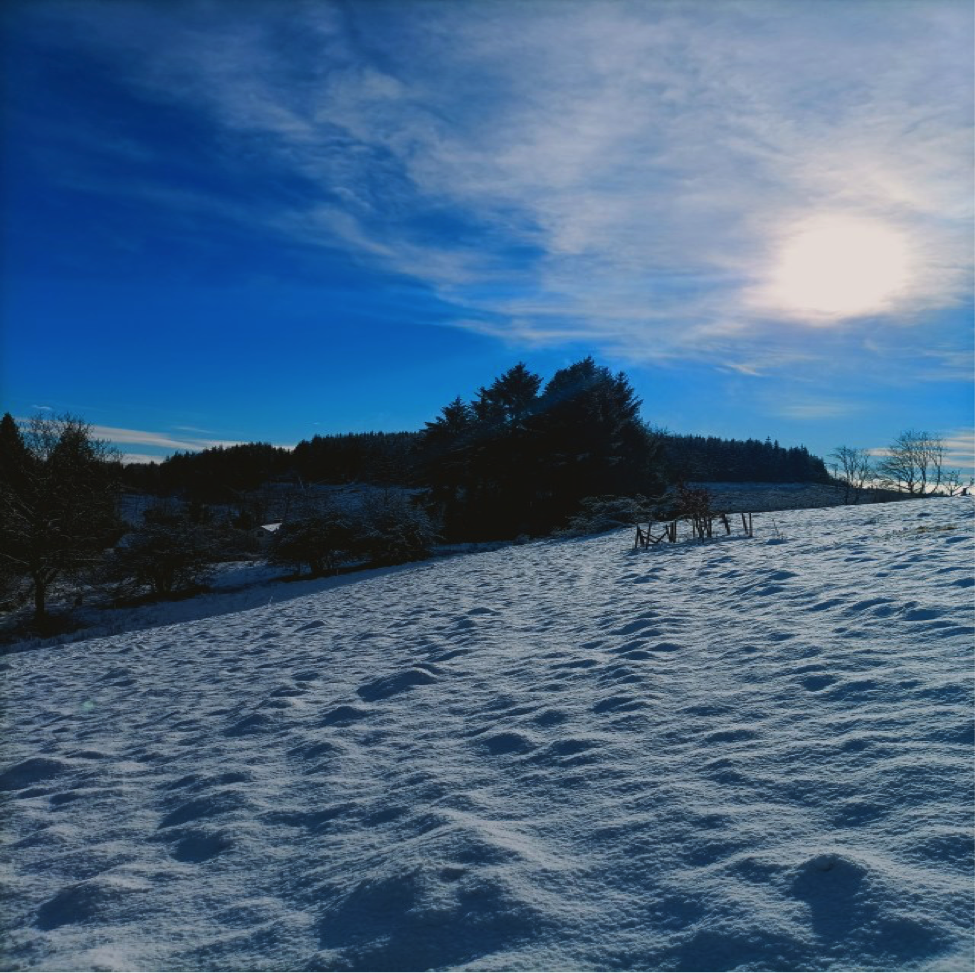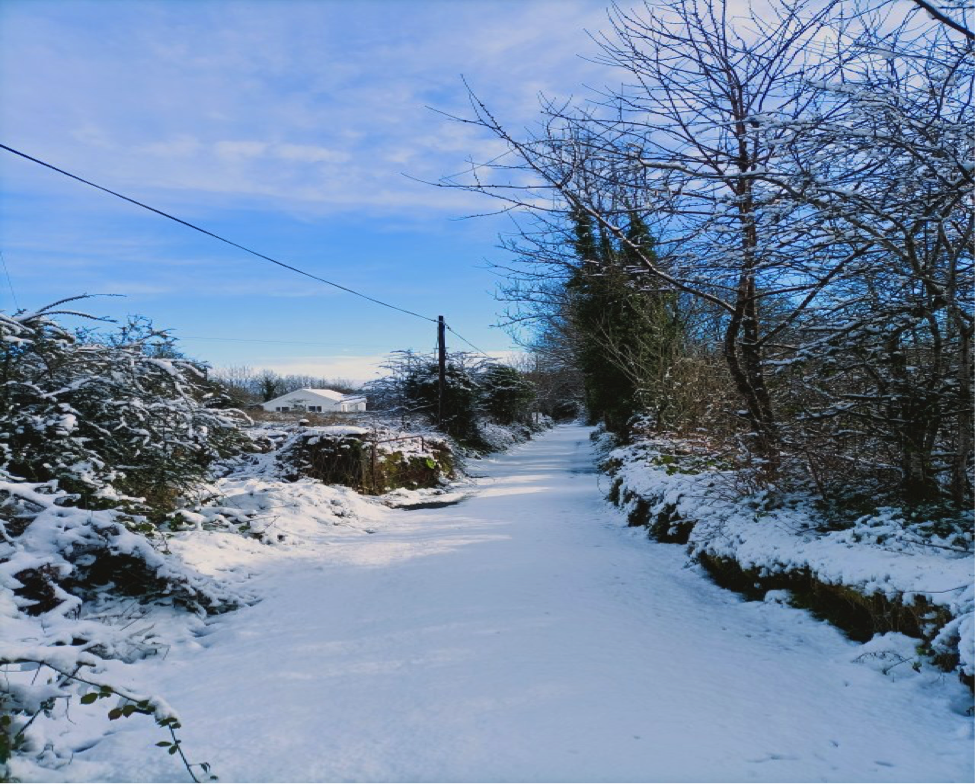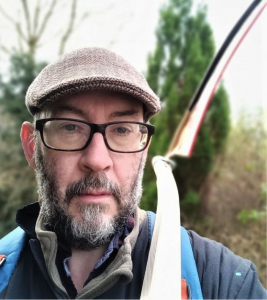The everyday poetry of the half-wild North-Western Irish world
Keith Brennan
The ripple of birdsong has spread from the far valley and broken across the farm. If spring moves at a walking pace then perhaps the birdsong walks with it. Where we are, with the farm backed up against Hawthorn Hill, facing north, it sometimes walks a little slower still.
Across the hill and down the valley, where the farms face into the sun, the birds arrived last week. These fields fringed three rows deep with hazel and willow. The spruce forest spends itself finally, after a hundred acres of quiet, dense, commercial tree farm, giving way to the cattle-farmed hills. Rolling open fields fringed with native trees. Cattle quiet amongst the rushes, or hidden between the groves. The clefts between drumlins loud with birdsong. Spring took some few days to walk its way from here across the hill and arrive at Hawthorn Hill.
We opened the windows of the house. In flowed the sound. The crisp fluid song of the thrush. The finch rapid and brilliant. The great tit siren call that bristles across the fields. We wait for the tik tak thunk of the woodpecker. It is still here after winter, seen this side of the hill and the far side. We have left dead ash and alder standing to tempt it. Our neighbours spot it at their feeder. Another has it seen where a hedge is being laid on his land.
In the orchard the wild garlic has woven the fabric of itself into the spring, its fragrance drifts across the orchard and the back woods like a living thing. As I work felling a hung Spruce with an axe, it catches me unawares. In the bright fractured light of the clean limbed woods, with the sun filtering through the bare branches, the scent surprises me. As the axe bites into the bark and the woodchips splinter from the trunk, it takes me a while to place it.

The red squirrels are out. They’ve been circling the lower house, down where the pine marten plies her trade. The fox too. Their three paths cross at the bottom of the farm.
I clear the top meadow of rushes with my scythe. It will be a hay meadow again. Last year it sang with bugle, wild mint, cinquefoil, orchids, bluebells, primroses, ragged robin, trefoil, clover, a sea of buttercups, pignut, angelica, thistle, chickweed and other things. We have cleared the rushes up to where the field meets the spring. There we have left them as the frogs love their shade. We have planted the field with apple trees, hazel, two native hedgerows, wild cherry and some plum. Mulched the trees with the cleared rushes. We will graze it once, or twice, early, and then leave the wildflowers to flush, then flower, then set their seed before we set to again with the scythe for our hay.
The snow comes, and we can track the pine marten’s path from the forest, down through the lambing field, out through the corner, and down the drive. We can see tracks from her on the hill too. A gap in the blackthorn hedge, where she comes on from the farm’s alder woods and pads back across the hill field towards the clearfell. The fox too, we see, her tracks for a time pad alongside the marten’s. Winter is short this year. A peck on the cheek. Time enough for snowball fights and sleds. Bacon sandwiches to warm small cold hands. Then once again the light and warmth of an early spring.


At the end of the month, on the last day of February, I hear a sound that pierces the sky like light. I look up, towards where the forest meets the corner of the farm. Soaring there, on four foot wingspans, the buzzards dip into the swerve of each other in the air; call, return, call again. They weave amongst each other and the spruce tops and the clear blue sky. The buzzard mating flight. I vault the fence and cross the clearfell, boots sucked into thick mud and the heavy rain falls and clears the pair from the sky. I am stuck in the mud following two Apollos of the air.
They are of me, I think. And I am of them. What I do, and more so do not do, makes of here a home for them. They hunt my fields and woods. They pick things from the treetops. They are harried from our hedgerows by crows, they burst from our meadow. The choices I make frame how they are here. That they are here, in part. And so, connected.
Something of the air in me and of me in the air, I finish February.

My name is Keith Brennan. I farm a small corner of North-West Ireland. Carefully. Sustainably. With stubbornness but no sprays. We raise rare breed sheep, goats, honeybees, and farm for biodiversity. I farm words over at Hawthornhillfarm.com where I blog about nature, our lives, loves, stubbornesses and the everyday poetry of the half-wild North-Western Irish world. You can also catch me on Twitter @HawHillFarm.
Photo credits: Keith Brennan
